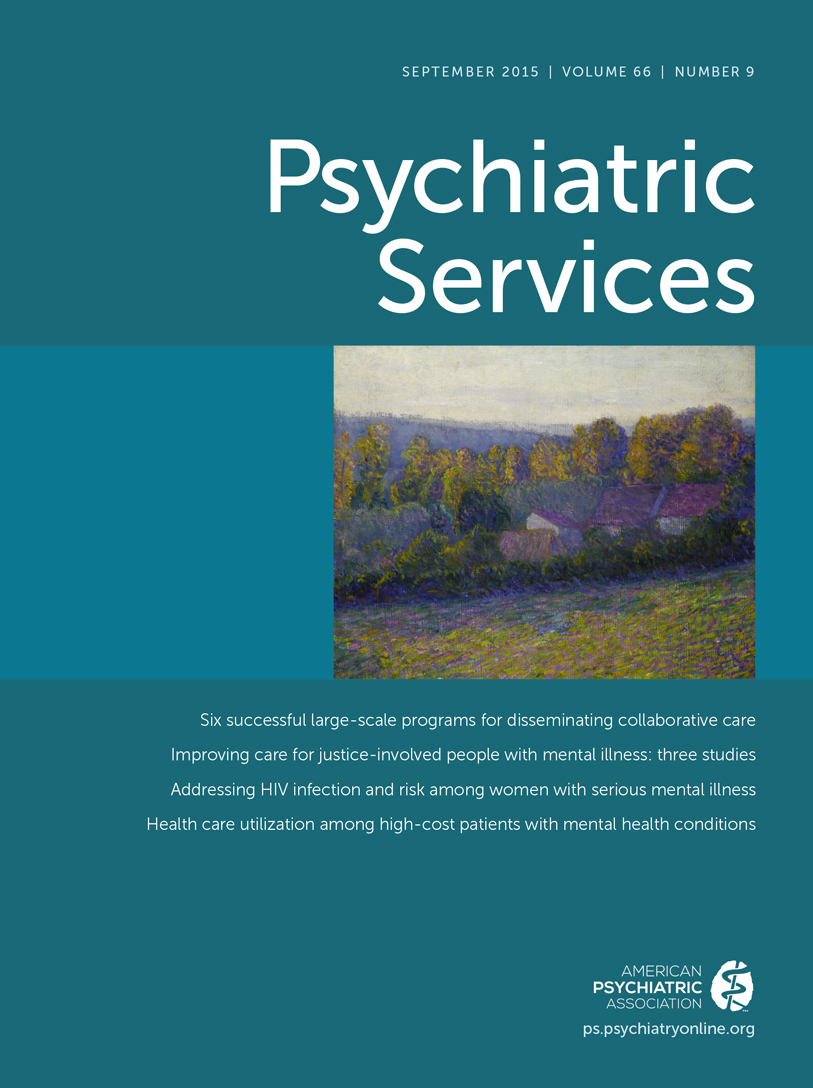Implementing a Web-Based Intervention to Train Community Clinicians in an Evidence-Based Psychotherapy: A Pilot Study
Abstract
Objective:
The authors conducted a feasibility assessment of online training plus an online learning collaborative to support implementation of an evidence-based psychosocial treatment in a community mental health system.
Methods:
Two mental health centers were randomly allocated to in-person training with local supervision, and three were assigned to online training plus an online learning collaborative supported by expert clinicians. Participants (N=36) were clinicians interested in interpersonal and social rhythm therapy (IPSRT), an evidence-based psychotherapy for bipolar disorder. After training, 136 patients reported monthly on the extent to which clinicians used 19 IPSRT techniques.
Results:
Clinicians from both training groups increased use of IPSRT techniques. Patients of clinicians receiving Internet-supported e-learning and of those receiving in-person training reported comparable clinician use of IPSRT techniques.
Conclusions:
Internet-supported e-learning by community clinicians was found to be feasible and led to uptake of an evidence-based psychotherapy comparable to that by clinicians who received face-to-face training.



